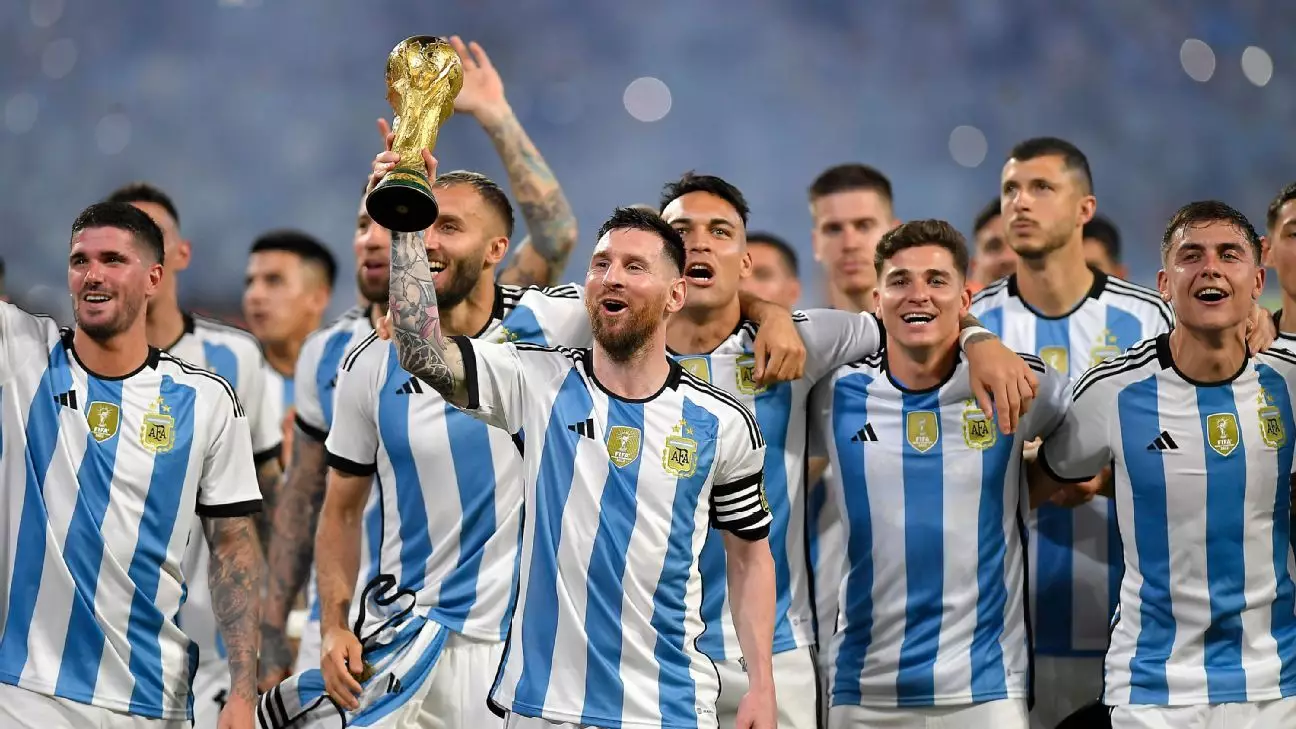Argentina has made headlines by securing its spot in the 2026 FIFA World Cup, marking itself as the first South American nation to qualify for this much-anticipated tournament. Following their triumphant win at the Qatar World Cup in 2022, Argentina once again stands at the threshold of footballing glory. The qualification process has been nothing short of a strategic display of skill, perseverance, and teamwork. This time, they don’t just enter the tournament as former champions but as a revitalized and tactically superior squad, bolstered by the leadership of legendary forward Lionel Messi.
The Road to Qualification
What set Argentina apart during the qualification phase was not merely their position atop the standings, but the way they dominated their opponents from the beginning. Earning 28 points confirms their strength in the South American qualifiers, showcasing away victories, notably against long-time rivals Brazil and Uruguay. These wins not only reflect their technical superiority but also build a psychological advantage. The pivotal moment came when Bolivia’s failure to secure a win against Uruguay cemented Argentina’s place, showcasing the intricate interplay where other teams’ results can significantly impact the narrative of qualification.
The Messi Factor: Legacy and Future
The ongoing speculation surrounding Lionel Messi’s future adds another layer of intrigue to Argentina’s journey. With his recent pronouncements hinting at retirement, fans and analysts alike are on edge, pondering whether the 37-year-old icon will grace the World Cup stage for a record sixth time. It’s a complicated emotional landscape; Messi’s presence is synonymous with hope for many, while discussions of his potential exit put additional pressure on the team. His injury has sidelined him for crucial matches, reminding us all that time can be a fickle adversary. Still, if there’s one characteristic Messi embodies, it’s resilience. His contract with Inter Miami, extending through 2025, offers some glimmer of hope that he could indeed participate in another World Cup.
An Expanding Horizon: The 48-Team Format
As the first-ever 48-team World Cup approaches, the dynamics of international football are changing dramatically. For Argentina, this expanded format represents both opportunity and competition. Qualifying as one of the top six teams in a region teeming with footballing talent illustrates the challenges they have surmounted. This shift can level the playing field, allowing teams from less established footballing nations the chance to compete on a grand stage. Yet for seasoned teams like Argentina, it may also mean facing opponents with surprising agility and flair, ready to make a name on such a high-profile platform.
The Early Comrades: A Sneak Peek into the Competition
Argentina is not alone in its early qualification; countries such as Japan, New Zealand, and Iran have already made their presence felt. This camaraderie among qualified teams hints at the broader narrative of global football. With varied play styles and strategies emerging from different regions, the tournament is poised to be a melting pot of talent and tactics. The competition is far from predictable; each team comes with its own unique story, driven by ambition and the dream of World Cup glory.
Every match in the upcoming World Cup will not only be a quest for victory but a showcase of football’s growing diversity, with Argentina standing at the forefront, ready to defend its title while facing an evolving landscape of footballing rivals.

